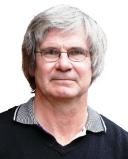Depression
Celebrating Steps Toward Humane Approaches to Distress
2022 saw many examples of the struggle for effective mental health services.
Posted December 20, 2022 Reviewed by Ekua Hagan
Key points
- There is a loose-knit, multi-faceted international movement to transcend the "medical model" of understanding and responding to distress.
- Every year, there are many examples around the world of this movement towards more humane, effective, evidence-based mental health services.
- In 2022 there were several such examples, including books, conferences, and anniversaries.
My posts here frequently document the dominance of, and damage sometimes caused by, a simplistic illness or "medical model" approach to the causes of, and responses to, emotional distress. This includes the continuing use of electro-shock therapy and the international epidemic of the overprescribing of psychiatric drugs which are rarely better than placebo and have severe adverse effects, including withdrawal symptoms when people try to stop.
As 2022 draws to a close, I thought that this post should instead celebrate some of this year’s successes in the ongoing struggle for more humane, evidence-based approaches to mental health problems. My short list is, inevitably, drawn from events I know about, or have been somehow involved with, and therefore represents just a tiny fraction of this multi-faceted international struggle that has been going on for decades now.
- The month of May saw the first international online conference of the International Institute for Psychiatric Drug Withdrawal, with about 500 participants from more than 30 countries. There were inspiring addresses from 5 leading lights in the international movement for many years now: Robert Whitaker, Laura Delano, Joanna Moncrieff, Carina Håkansson, and Magnus Hald. The second conference is on February 10 and 11, 2023.
- In September, the International Society for Psychological and Social Approaches to Psychosis held its 22nd International Congress in Perugia, Italy.
- December 14th 2022 saw Mad in America, the creation of award winning journalist Robert Whitaker and his many colleagues, release its 200th podcast. I have lost track of how many spin-offs in how many countries have emerged, and when. I suggest you Google "Mad in ... "
- This year also marked the 25th anniversary of the first review of the research showing a link between childhood abuse and psychosis, and saw a subsequent review (in 2005) of the many studies that followed that first review pass the 2,000 citations mark.
- Our campaign for an independent enquiry into the administration and monitoring (or lack thereof) of ECT in the UK went from strength to strength in 2022, receiving significant support from mental health organisations and MPs, and considerable mainstream media attention.
- Every year, of course, sees the sad passing of some heroes of the movement. I would like to briefly celebrate, here, the lives of just four of them, and their very different contributions: Celia Brown, Peter Campbell, Johan Cullberg and Pete Sanders.
- Pete Sanders was a close friend. (The portrait accompanying this blog is my attempt to keep his memory alive by sketching him). I am delighted that the remarkable publishing company he founded, PCCS Books, decided, after his death, to bring out a second edition of a book I wrote with Pete titled, A Straight Talking Introduction to the Causes of Mental Health Problems, in November. Updating it was truly a "labour of love."
- There were, of course, many other books in 2022, as there are every year, critiquing the medical model and/or pointing the way to more evidence-based, human, and effective approaches, including: A Straight Talking Introduction to Psychiatric Diagnosis by Lucy Johnstone, Antidepressed by Beverley Thomson, Mental Health Survival Kit by Peter Gotzshe, Sedated by James Davies, Schizophrenia - An Unfinished History by Orna Ophir, and Withdrawal from Prescribed Psychiatric Drugs by Peter Lehman and Craig Newnes. Meanwhile, the impressive ISPS book series grew ever larger in 2022, with Finding Hope in the Lived Experience of Psychosis by Patte Randall and Josephine Stanton.
- Besides providing links to obituaries for the four special people named above, I must mention that 2022 also saw 16 participants in the struggle for humane mental health services come together to publish a living tribute to radical psychiatrist Marius Romme, who, with Patsy Hague and Sandra Esher, pioneered the wonderful international Hearing Voices movement.
- Indeed, another highlight of the year, for me, as always, was the annual World Hearing Voices Congress, this year held in Brazil, in November. It was the 13th such Congress.
- In the UK, December 2022 will be remembered as the month that our National Institute for Health and Care Excellence (NICE) took an evidence-based stand against the aggressive lobbying of the drug company concerned and the Royal College of Psychiatrists by ruling that Esketamine, a derivative of the hallucinogenic street drug ketamine, "is not recommended" for the treatment of depression.
- Staying with depression, July 2022 saw the publication, in the journal Molecular Psychiatry, of a bombshell paper entitled, "The serotonin theory of depression: a systematic umbrella review of the evidence." It examined the chemical imbalance theory of depression, espoused for so long by the drug companies and many psychiatrists. Psychiatrist Joanna Moncrieff and her colleagues concluded: "The main areas of serotonin research provide no consistent evidence of there being an association between serotonin and depression, and no support for the hypothesis that depression is caused by lowered serotonin activity or concentrations." Thus, the rationale for prescribing antidepressants designed to increase the flow of serotonin was exposed as being more myth than fact.
- Another, smaller, positive "sign of the times" was the fact that the editor of the esteemed journal Psychological Medicine invited me to summarise the problems with the medical model’s approach to depression. I was, of course, happy to do so, with the help of the aforementioned psychiatrist, Dr Moncrieff, under the title, "Depression: Why drugs and electricity are not the answer."
I apologise to all the campaigners, authors, conference organisers and researchers that my little list has omitted. It is good to know, however, that there are so many of you out there. I encourage you to publish your own list of favourite 2022 events. We need to keep one another informed and, thereby, inspired to carry on the struggle.


